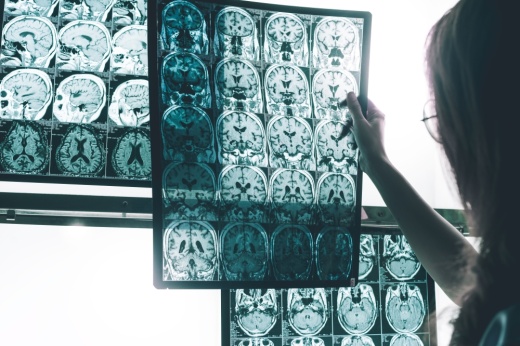Approximately 460,000 Texans have Alzheimer's disease, a progressive brain disorder that affects memory, thinking and behavior. Over 1.1 million Texans provide unpaid care to loved ones who have Alzheimer’s or other forms of dementia, according to the Alzheimer’s Association, a national nonprofit.
Advocates are encouraging Texas voters to approve State Proposition 14, a proposed constitutional amendment that would allow the state to spend $3 billion to launch the Dementia Prevention and Research Institute of Texas. The proposal received nearly unanimous support from state lawmakers earlier this year, although some Texas House Republicans expressed concerns about creating a new government agency.
Early voting runs through Oct. 31, and Election Day is Nov. 4. For more information about the propositions and candidates on your local ballot, visit www.communityimpact.com/voter-guide.
The big picture
Proposition 14 would allocate $3 billion in state dollars to fund the institute, known as DPRIT, for the next 10 years. The institute would work with researchers and doctors to study the prevention and treatment of various neurodegenerative disorders, including Alzheimer’s disease, Parkinson’s disease and dementia.
Lawmakers and experts said all funding for the institute would come from existing state revenue, donations and potential federal grants, meaning no new state taxes or fees would be created by the proposition.
If approved by voters, DPRIT would be “the largest state-funded dementia research program in the country, with the goal of accelerating progress towards prevention,” Melissa Sanchez, the Texas public policy director for the Alzheimer’s Association, told Community Impact.
Up to $300 million per year would be available for dementia-related research grants to higher education institutions, medical facilities and related programs, according to the Texas House Research Organization.
DPRIT would be similar to the Cancer Prevention and Research Institute of Texas, which was established in 2009. Since its founding, CPRIT has attracted 340 researchers to Texas and brought in $11.6 billion in outside funding to the state, CPRIT Communications Director Mark Loeffler said.
The impact
Joshua Shulman, co-director of the Duncan Neurological Research Institute at Texas Children’s Hospital, said Proposition 14 would be “a game-changer” for neurological research.
“It's exciting as a Texan, because I think if Proposition 14 passes, it really will establish Texas as an incredible leader in our country, and really in the world, for a model of how a state like Texas can really invest in these important problems and challenges,” Shulman said. “[This funding] would allow us to recruit, really, the best and brightest people to Texas who are interested in studying problems like Alzheimer's disease.”
Shulman, who is also a professor of neurology, neuroscience and genetics at the Baylor College of Medicine, studies genetic factors in Alzheimer’s disease, including how childhood neurodevelopmental disorders are related to dementia.
“One way I like to explain this is that if you're trying to understand how as we age, the brain might lose cells or have trouble maintaining functions, you need to understand how the brain forms in the first place, which, of course, is a process that occurs during childhood,” Shulman said.
Shulman said the establishment of DPRIT would help scientists and physicians better understand dementia and Alzheimer’s disease. This could look like the development of new dementia treatments to “not just stabilize the disease, but also improve the conditions of the person living with the disease” as researchers work toward a cure for Alzheimer’s, Sanchez said.
“DPRIT is designed to connect research and real-world practice, so that the discoveries happening in the labs can actually make their way to the patients in physicians’ exam rooms or [on] the hospital floors faster,” Sanchez said. “For families dealing with this disease, ... it would help attract the best and brightest experts in neurodegenerative diseases, including specialty doctors and clinicians, which in turn can result in increased access to care, improved quality of care and that enhanced support that's so critical for patients and their caregivers.”
More details
The state proposition passed the Texas Legislature with nearly unanimous support this spring. Since the creation of DPRIT would be enshrined in the Texas Constitution, voters have the final say.
“We want to give people quality of life on the front end of their lives as well as on the back end of their lives,” state Rep. Senfronia Thompson, D-Houston, said on the House floor in April. “We believe that this research is going to help us to find those triggers that are causing the problems of Alzheimer's and dementia in people.”
Rep. Brian Harrison, R-Midlothian, said in April that medical research should be left to the “free market” and dementia or Alzheimer’s-related diseases should not be the only illness researched.
"What good could be done in the private sector with the $3 billion instead of the government taking it, handing it to bureaucrats to spend as bureaucrats see fit?" Harrison said. “This is corporate welfare on steroids.”
A nine-member board appointed by the governor, lieutenant governor and Texas House Speaker would oversee the institute’s grant programs, according to the legislation. The institute would undergo an independent financial audit each year and be required to release an annual report detailing its research activities, grant awards and finances.





